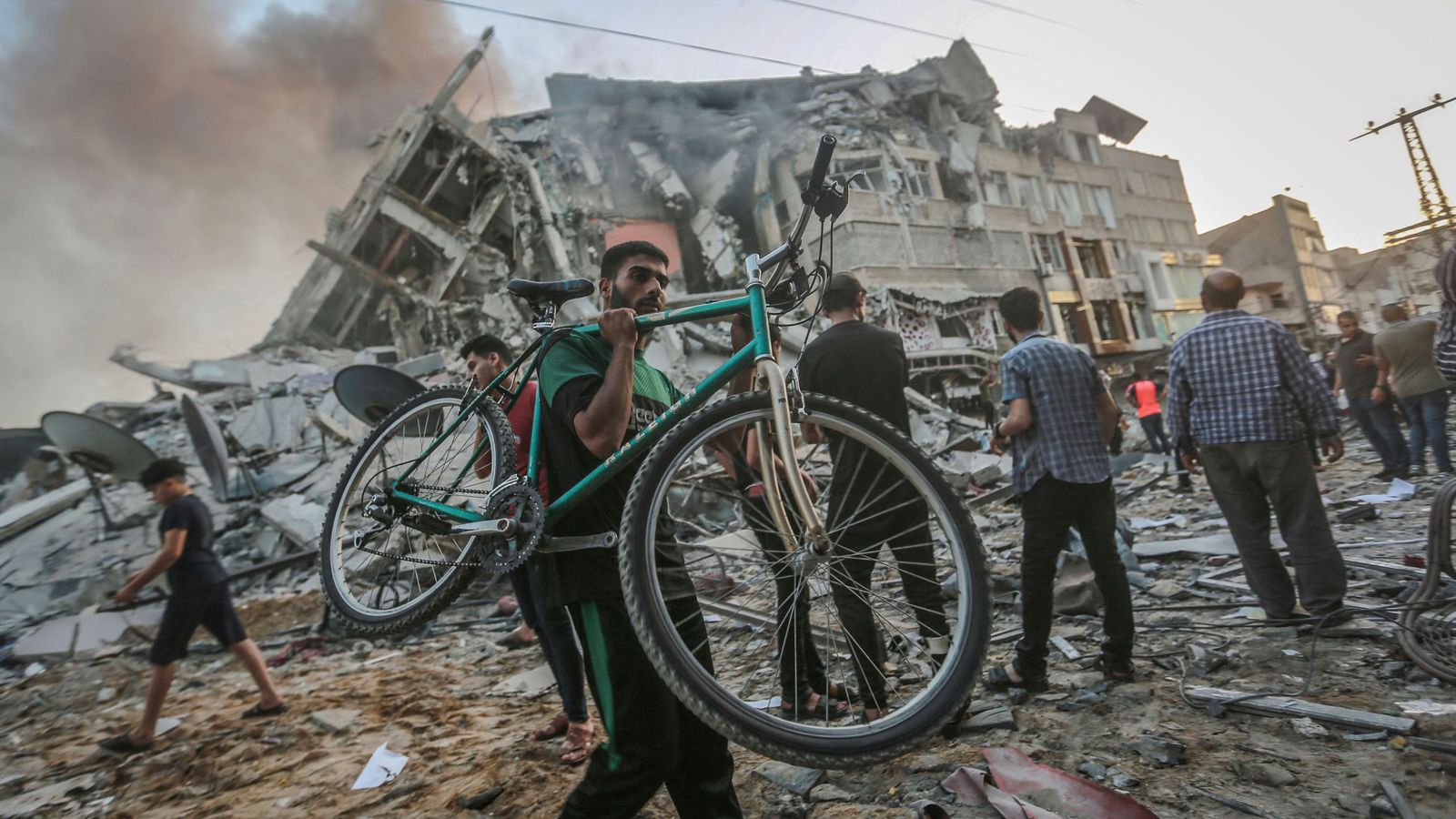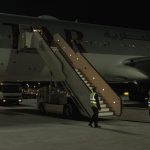With Israeli troops preparing for a possible ground invasion, Israeli air strikes pulverising new targets in the Gaza Strip and Hamas rockets still blasting towards Israeli cities, urgent diplomacy is the only way to prevent all-out war.
US President Joe Biden seems to think there is a greater chance than not that the worst Israeli-Palestinian hostilities in at least seven years will end soon.
But there is no sign of any de-escalation on the ground.
A spokesman for the Israeli military said on Thursday that the Israeli Defence Force has its “marching orders for the day”, while overnight Palestinian militants launched another volley of rockets towards Tel Aviv – Israel’s commercial capital.
Diplomatic levers are being pulled from every side.
There have been public calls for calm from across the international community.
The United States, China, Russia, the UK and the European Union are just some of those to have made official statements.
Washington has sent a senior diplomat – Hady Amr – to the region to speak with the Israelis and the Palestinian Authority under President Mahmoud Abbas. But not to Hamas, which is running the Palestinian offensive along with a fellow militant organisation, Islamic Jihad.
Please use Chrome browser for a more accessible video player
The United States has significant leverage over Israel as its closest ally and a key military partner. But it does not have any direct lines of communication with Hamas – designated by the US as a terrorist organisation – so it can only reach them via intermediaries.
Therefore, the key for a successful negotiation will be the ability of Egypt and Qatar to help broker a deal.
Please use Chrome browser for a more accessible video player
Both countries have been instrumental in persuading Hamas to dial down the violence in previous conflicts with Israel.
The United Nations is also involved but as yet there is little evidence of any progress.
This crisis is the first major test for President Joe Biden in the Middle East.
Since taking over from Donald Trump, he has not seen the region as a priority and has not yet appointed an ambassador to Israel.
However, the events of the past week appear to have changed all of that, with the president speaking directly to Israeli Prime Minister Benjamin Netanyahu on Wednesday and saying that the two men will keep in regular contact.
The increased engagement by the White House is clear evidence that attempting to defuse the crisis between Israel and the Palestinians is once again a top priority.
The big question, though, is whether that will be enough or whether this region is again about the plunge into a brutal, bloody war.






















